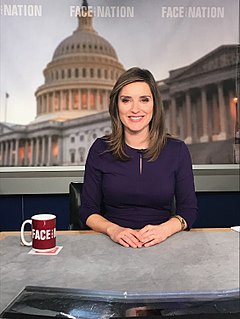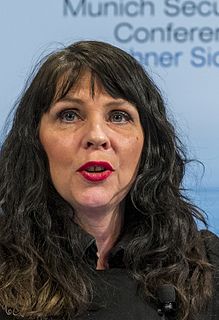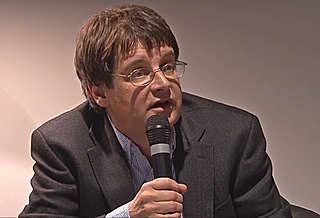A Quote by Robert Waterman McChesney
An informed public democracy means rule of the people. A media system is absolutely essential to that process, if people are going to be political equals, they to have to have the information and tools so they can actually be participants. That's liberal democracy 101.
Related Quotes
Democracy depends on citizens being informed, and since our media, especially television (which is the most important source of news for most Americans) reports mostly what the people in power do, and repeats what the people in power say, the public is badly informed, and it means we cannot really say we have a functioning democracy.
The media plays an essential role in our culture. It is the Fourth Estate; it's an undeniably essential instrument in the great American experiment - in keeping our democracy functional. People have very strong opinions about what that means and how information should be disseminated to a population that requires information.
I call government that works the best for people open society, which is basically just another more general term for a democracy that is - you call it maybe a liberal democracy. It's not only majority rule but also respect for minorities and minority opinions and the rule of law. So it's really a sort of institutional democracy.
Democracy doesn't mean much if people have to confront concentrated systems of economic power as isolated individuals. Democracy means something if people can organize to gain information, to have thoughts for that matter, to make plans, to enter into the political system in some active way, to put forth programs and so on. If organizations of that kind exist, then democracy can exist too. Otherwise it's a matter of pushing a lever every couple of years; it's like having the choice between Coca-Cola and Pepsi-Cola.
The US two party system is very different, of course. Here the people decides about who should rule them, but it is not reasonable to claim that the people rules itself through the political institutions. In comparison, I find that the standard European system is better, also as a model for global democracy.
Democracy, in the United States rhetoric refers to a system of governance in which elite elements based in the business community control the state by virtue of their dominance of the private society, while the population observes quietly. So understood, democracy is a system of elite decision and public ratification, as in the United States itself. Correspondingly, popular involvement in the formation of public policy is considered a serious threat. It is not a step towards democracy; rather it constitutes a 'crisis of democracy' that must be overcome.
For me, it is clear that we are currently in a period of structural crisis of capitalism going back to the 1970s, but deepening in our time. Persistent economic stagnation together with neoliberal austerity has at this point seriously undermined the stability of the liberal-democratic state and thus the political command sector of the capitalist system. This has led to a dangerous resurgence of political movements in the fascist genus, representing an alternative way of managing the state of the capitalist system, opposed to liberal democracy.

































